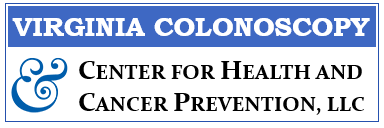Colorectal Cancer
SYMPTOMS
Colorectal Cancer
Colorectal Cancer (cancer of the colon and rectum) is the second leading cause of cancer mortality for men and women combined in the United States. In 2019, there will be 150,000 new cases of colon cancer and 50,000 deaths from the disease. Put another way, 1 in 24 women and 1 in 22 men will at some point in their lives develop colorectal cancer if there are no screening measures taken, such as a colonoscopy (a painless, 10-minute video camera examination of your colon under light anesthesia).

Early Detection
Early detection is critical and is often curative with minimal or even without surgical treatment- the best possible cancer treatment. If detected early, colorectal cancer has better than a 90% survival rate. This is because virtually all colorectal cancers start off as a benign polyp (in the lining of the colon) in the early stages and stay that way for 5 years or longer. This allows the precancerous, but still benign polyp, to be removed during a colonoscopy so that no cancer will develop or spread from parts of the colon to other parts of the body. Since polyps do not generally produce symptoms, a colonoscopy has to be performed routinely and preventatively. Because a screening colonoscopy can essentially cure or completely prevent colorectal cancer, colorectal cancer is considered the most preventable and curable of all common cancers. While there has been a consistent decline in the overall rates of colon cancer likely due to early screening with a colonoscopy, there has been an alarming rise in the incidents of colon cancer of 1-2 percent per year in younger patients under the age of 50. Because of this, the American Cancer Society now recommends screening for colorectal cancer with a colonoscopy at age 45 instead of its previous recommendation of age 50. This applies for individuals with no risk factors.
Risk Factors
If you do have additional risk factors that raise your risk of colon cancer, such as smoking, obesity, family history of polyps or colorectal cancer, or previous history of colon polyps or inflammatory bowel disease, you should get a screening at age 40 or 45 not 50. Most gastroenterologists, who see most of the new cases of colorectal cancer, feel that a colonoscopy is the ‘gold standard’ or best and most accurate way to diagnose polyps and early colon cancer.
Screening
Screening tests other than a colonoscopy, such as the FOBT, stool specimens, and Cologard are not nearly as sensitive or accurate as colonoscopy and may miss premalignant polyps and even cancer. While patient compliance with screening and early detection measures has improved considerably over the past 30 years, 40% of the adult population over the age of 45 still has not had a screening colonoscopy. There is really no good reason, as they say, for people to “sit on colon cancer.” Early detection is highly effective in preventing colon cancer. A 10-minute screening colonoscopy can literally save your life!
HAVE ANY QUESTIONS?
Need Any Help? Get in touch with us tooday!
Experience compassionate care; connect with our medical experts today for personalized assistance.
OR CALL: (757) 412-4919

TESTIMONIAL
Our Happy Patients
Our commitment to our patients shows in our reviews!
A few weeks ago I visited your office for a long overdue ‘routine’ colonoscopy. I was surprised how painless and unembarrassing it was. To my surprise, Dr. Berger told me he found a large polyp that he was able to remove. Yikes! Thank God everything turned out okay, but I am extremely grateful to you and your fantastic team (thanks Linda!) for helping me through this! You are all wonderful!
A sincere thanks to all of you for being so nice when I had my upper endoscopy. Words can’t express my appreciation to Dr. Berger for his understanding and patience. . . I delayed having this procedure for a long time, knowing this would be a problem – maybe insurmountable. I was so embarrassed at my difficulty, but you . . .solved the problem. You’re terrific and I am grateful.
